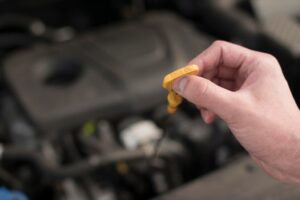In a world where technology evolves at an unprecedented pace, vehicles have become marvels of modern engineering. These machines are no longer simple mechanical devices; they are complex systems integrating electronics, software, and mechanical components. Amidst this complexity, the role of a trained automobile mechanic stands out as a vital example of specialized skill, expertise, and practical knowledge. Let’s delve into what makes this profession exemplary and indispensable in today’s society.
The Essence of a Trained Automobile Mechanic
At its core, a trained automobile mechanic is a professional equipped with the knowledge and hands-on experience to diagnose, repair, and maintain vehicles. Unlike a generalist who might have a passing familiarity with cars, a trained mechanic undergoes rigorous education and practical training to become proficient in their craft. This expertise ensures that they can address a wide range of automotive issues, from basic oil changes to complex engine repairs.
But what does this really mean? Consider this: a trained mechanic doesn’t just fix cars. They interpret problems that might baffle the average person. A strange noise under the hood, a flashing dashboard warning light, or a sudden loss of power are challenges they tackle with methodical precision. Their ability to understand and resolve these issues reflects their deep well of knowledge and technical aptitude.
Training: The Foundation of Expertise
To become a trained automobile mechanic, one must typically undergo formal education, apprenticeships, or certification programs. This journey involves learning:
- Automotive Systems: Understanding the intricate systems within a car, including the engine, transmission, brakes, and suspension.
- Diagnostic Tools: Mastery of advanced diagnostic equipment to pinpoint issues accurately.
- Technical Manuals and Software: Familiarity with vehicle-specific technical documentation and software tools.
- Problem-Solving Techniques: Developing a logical and systematic approach to troubleshooting.
- Customer Service Skills: Communicating effectively with clients about their vehicle’s condition and repair needs.
In many countries, mechanics must also obtain certifications, such as the Automotive Service Excellence (ASE) certification in the United States. These credentials not only validate their skills but also reassure customers that their vehicles are in capable hands.
Why a Trained Mechanic Is an Example of Applied Knowledge
The role of a trained automobile mechanic is a textbook example of applied knowledge. Unlike theoretical learning, mechanics take abstract concepts from physics, mathematics, and engineering and apply them to solve real-world problems. For instance:
- Physics in Action: Understanding torque, friction, and thermodynamics helps them diagnose issues related to engine performance or brake systems.
- Mathematics in Practice: Calculations related to fluid dynamics or gear ratios are critical in ensuring repairs meet precise specifications.
- Engineering Principles: Mechanics need a firm grasp of mechanical design to understand how vehicle components work together.
This blend of theory and practice not only highlights their expertise but also underscores their value in ensuring road safety and vehicle longevity.
Adapting to Technological Advancements
Modern vehicles are increasingly becoming computers on wheels. With features like Advanced Driver-Assistance Systems (ADAS), electric drivetrains, and onboard diagnostics, the automotive landscape is rapidly changing. Trained mechanics must continuously update their skills to keep up with these advancements.
For example, working on an electric vehicle (EV) requires knowledge of high-voltage systems, battery technologies, and specialized safety protocols. Similarly, diagnosing issues in cars with autonomous features demands an understanding of sensors, cameras, and complex software algorithms. This adaptability showcases the dynamic nature of the profession and the commitment of trained mechanics to lifelong learning.
The Human Element: Beyond Technical Skills
While technical expertise is crucial, a trained automobile mechanic also exemplifies important human qualities, such as:
- Problem-Solving Skills: Every vehicle presents a unique set of challenges, requiring creativity and critical thinking.
- Patience and Perseverance: Diagnosing elusive problems or dealing with stubborn components often tests their resilience.
- Empathy and Communication: Explaining technical issues to customers in a way they can understand builds trust and ensures transparency.
These qualities elevate mechanics beyond mere technicians; they become trusted advisors who ensure their clients’ vehicles are safe, efficient, and reliable.
Economic and Social Impact
The work of a trained automobile mechanic has far-reaching implications for both the economy and society. Their contributions include:
- Ensuring Road Safety: Properly maintained vehicles are less likely to be involved in accidents.
- Reducing Environmental Impact: Timely repairs and maintenance improve fuel efficiency and reduce emissions.
- Supporting Local Economies: Auto repair shops provide jobs and stimulate local business ecosystems.
- Enhancing Mobility: By keeping vehicles in optimal condition, mechanics enable people to commute, work, and connect with others.
Challenges in the Profession
Despite their indispensable role, trained mechanics face several challenges:
- Staying Current: Rapid advancements in automotive technology require constant upskilling.
- Workplace Hazards: Exposure to chemicals, heavy machinery, and high-stress situations poses health risks.
- Perception Issues: The profession is sometimes undervalued or misunderstood, despite its critical importance.
The Future of the Automotive Mechanic Profession
Looking ahead, the profession of a trained automobile mechanic is poised for transformation. The rise of electric vehicles, autonomous driving, and shared mobility will reshape the automotive landscape. However, these changes also open new opportunities:
- Specialized Roles: Mechanics may focus on specific areas like EV maintenance, ADAS calibration, or software diagnostics.
- Higher Demand for Training: The need for advanced skills will increase, leading to more comprehensive training programs.
- Integration with Technology: Mechanics will collaborate more closely with software engineers, data analysts, and other tech professionals.
While the tools and techniques may evolve, the essence of the profession—a commitment to solving problems and serving the community—will remain unchanged.
Conclusion
A trained automobile mechanic is much more than someone who “fixes cars.” They are problem solvers, lifelong learners, and pillars of their communities. Their work embodies the perfect blend of technical expertise and human empathy, making them an invaluable example of applied knowledge in action. As vehicles continue to evolve, so too will the skills and contributions of these dedicated professionals, ensuring that they remain an indispensable part of our lives.











